Share your results
Please enter your email
Results shared!
We've sent a link to your email so you can access your results at any time.
Stress is a common problem that can have negative effects on your mental and physical health. Taking the time to relax every day helps manage stress and protect your body from the effects of stress.

The nervous system regulates your movement, sensation, cognition, and emotion. It is comprised of the brain, spinal cord, and an intricate web of nerves throughout the body.
An important function of the nervous system is to respond to stress and perceived potential danger.
This is commonly referred to as the ‘fight or flight’ response. When encountering a stressful situation your heart rate, blood pressure, and respiration can increase, while your digestion and immune function may decrease.
The nervous system regulates your movement, sensation, cognition, and emotion. It is comprised of the brain, spinal cord, and an intricate web of nerves throughout the body.
An important function of the nervous system is to respond to stress and perceived potential danger.
This is commonly referred to as the ‘fight or flight’ response. When encountering a stressful situation your heart rate, blood pressure, and respiration can increase, while your digestion and immune function may decrease.
Read less...
While this response may be necessary in the short term, your nervous system can sometimes struggle to return to its normal state.
Sometimes non-threatening situations can also trigger a stress response which can feel uncomfortable.
Learning how to return your nervous system to normal can help improve your mental health, and reduce your risk of long-term health issues that are caused by stress.
Here are five ways to calm your nervous system and reduce stress:
While this response may be necessary in the short term, your nervous system can sometimes struggle to return to its normal state.
Sometimes non-threatening situations can also trigger a stress response which can feel uncomfortable.
Learning how to return your nervous system to normal can help improve your mental health, and reduce your risk of long-term health issues that are caused by stress.
Here are five ways to calm your nervous system and reduce stress:
Read less...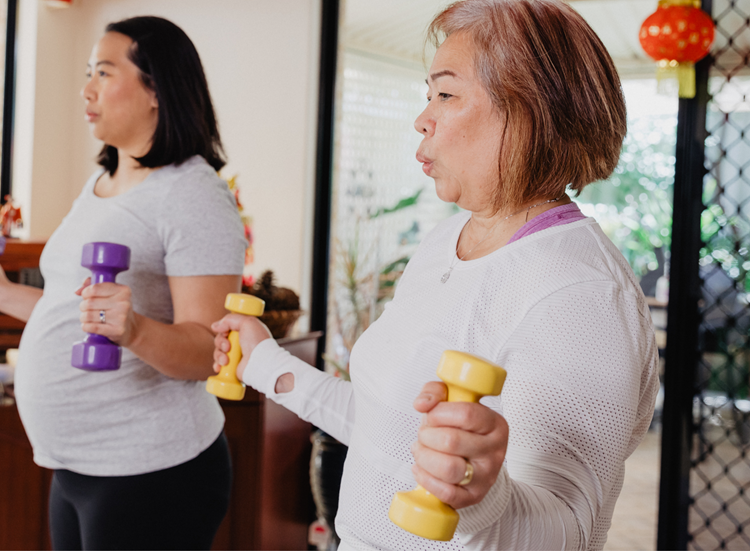
One of the simplest and most effective ways to calm the nervous system is through deep breathing.
There are no set rules, but one of the most popular techniques is the '4-7-8' technique. The steps are:
Start here with this 5-minute practice:
One of the simplest and most effective ways to calm the nervous system is through deep breathing.
There are no set rules, but one of the most popular techniques is the '4-7-8' technique. The steps are:
Start here with this 5-minute practice:
Read less...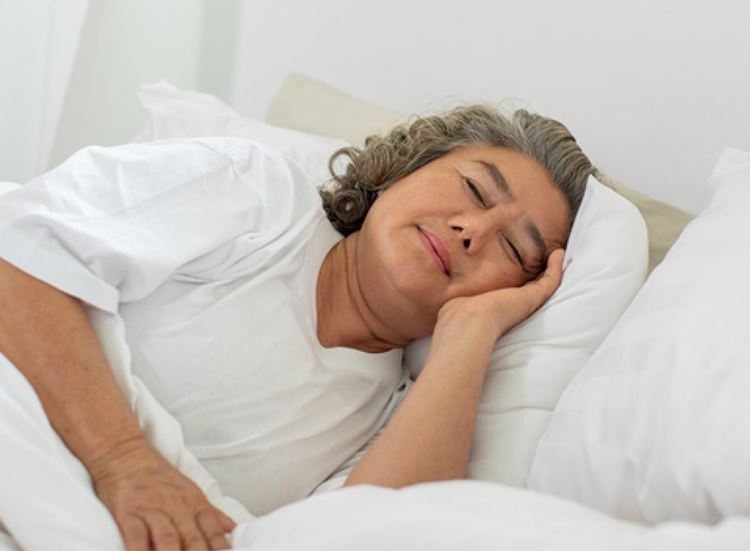
Meditation is a mindfulness practice. This means keeping a focus on the present moment and observing your thoughts and sensations without judgment.
This practice is usually done while seated or lying down.
You can link meditation with deep breathing by keeping your focus solely on your breath. You can do this practice alone or you can be guided through the process.
Start here with this guided practice:
Meditation is a mindfulness practice. This means keeping a focus on the present moment and observing your thoughts and sensations without judgment.
This practice is usually done while seated or lying down.
You can link meditation with deep breathing by keeping your focus solely on your breath. You can do this practice alone or you can be guided through the process.
Start here with this guided practice:
Read less...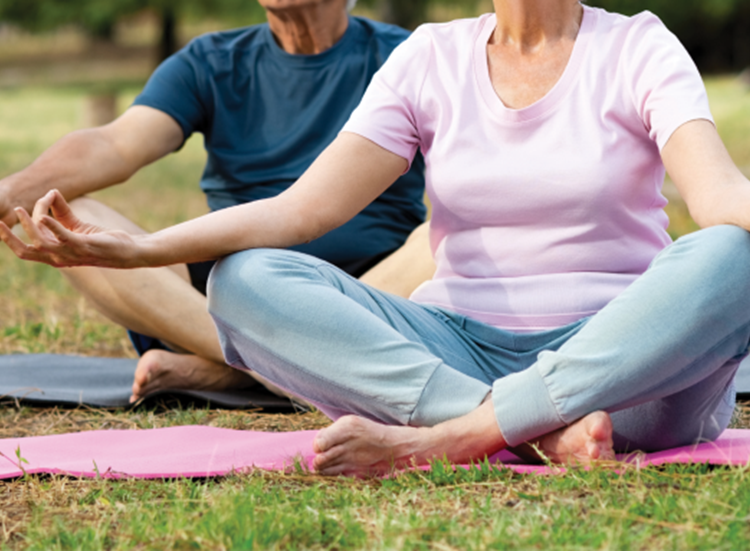
Yoga is a mind-body practice that combines body movement, controlled breath, and meditation.
You can expect to move your body into many different poses or stretches during a yoga session. These poses are held from a few seconds to several minutes while focussing on slow, controlled breath.
While it is relaxing, yoga is not always easy. So, it is best to start slow. Also consider chair yoga.
Or start here with this 10-minute beginner’s practice:
Yoga is a mind-body practice that combines body movement, controlled breath, and meditation.
You can expect to move your body into many different poses or stretches during a yoga session. These poses are held from a few seconds to several minutes while focussing on slow, controlled breath.
While it is relaxing, yoga is not always easy. So, it is best to start slow. Also consider chair yoga.
Or start here with this 10-minute beginner’s practice:
Read less...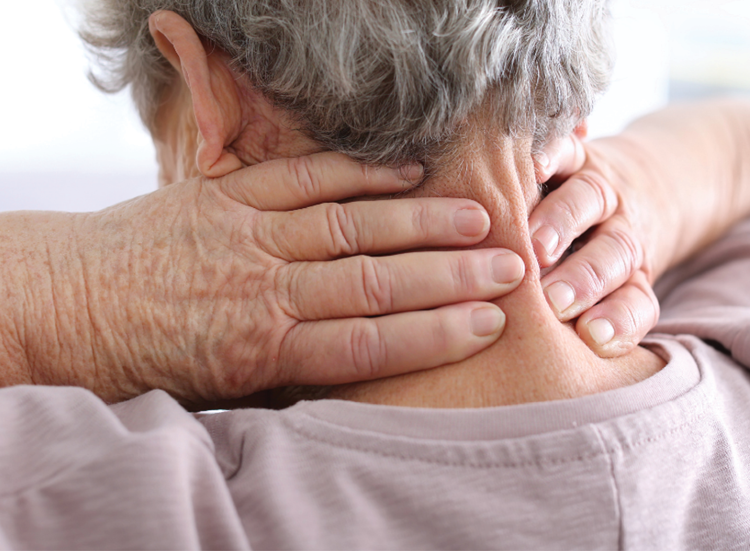
Progressive muscle relaxation involves tensing and relaxing different muscles in your body. This technique can help to promote relaxation and reduce tight muscles.
Start by tensing a muscle for a few seconds then releasing the tension and relaxing the muscles. Do this across a group of muscles like your shoulders, upper arm, lower arm, hands, and fingers. Repeat this process with different muscle groups throughout the body.
Start with this 10-minute guide:
Progressive muscle relaxation involves tensing and relaxing different muscles in your body. This technique can help to promote relaxation and reduce tight muscles.
Start by tensing a muscle for a few seconds then releasing the tension and relaxing the muscles. Do this across a group of muscles like your shoulders, upper arm, lower arm, hands, and fingers. Repeat this process with different muscle groups throughout the body.
Start with this 10-minute guide:
Read less...
Owning a pet can have many positive effects on your nervous system. Studies have found that interacting with pets can reduce stress, anxiety, and depression.
Pets can also lower your blood pressure and resting heart rate. Spending time with a pet releases oxytocin, a hormone associated with relaxation and bonding.
Owning a pet can also provide a sense of purpose and companionship. This is beneficial if you are experiencing loneliness or social isolation. While owning a pet is not a substitute for professional treatment, it can be a helpful support to therapy and medication for some people.
Owning a pet can have many positive effects on your nervous system. Studies have found that interacting with pets can reduce stress, anxiety, and depression.
Pets can also lower your blood pressure and resting heart rate. Spending time with a pet releases oxytocin, a hormone associated with relaxation and bonding.
Owning a pet can also provide a sense of purpose and companionship. This is beneficial if you are experiencing loneliness or social isolation. While owning a pet is not a substitute for professional treatment, it can be a helpful support to therapy and medication for some people.
Read less...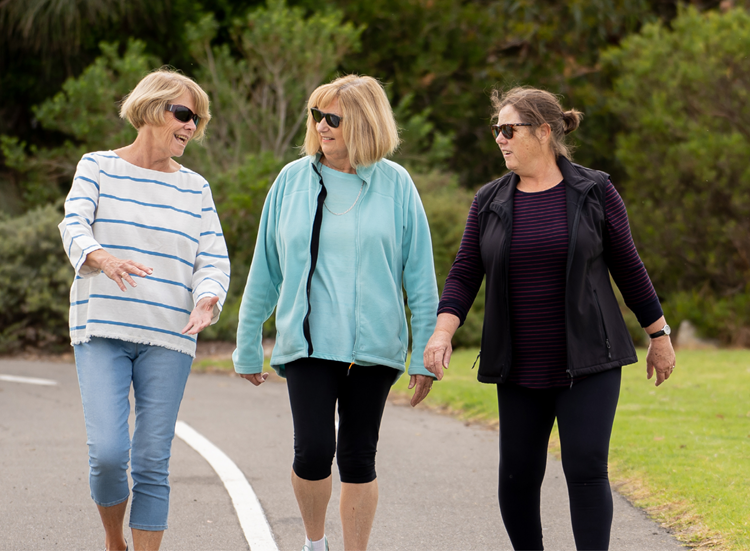
There are many other ways to promote relaxation and reduce stress that work together with these techniques. These include:
Overall, it's important to find strategies that work for you. Incorporate these strategies into your daily routine to best support your health.
There are many other ways to promote relaxation and reduce stress that work together with these techniques. These include:
Overall, it's important to find strategies that work for you. Incorporate these strategies into your daily routine to best support your health.
Read less...American Heart Association (AHA). (2021, May). 5 ways pets help with stress and mental health. https://www.heart.org/en/healthy-living/healthy-bond-for-life-pets/pets-as-coworkers/pets-and-mental-health
Harvard Health Publishing. (2024, July). Relaxation techniques: Breath control helps quell errant stress response. https://www.health.harvard.edu/mind-and-mood/relaxation-techniques-breath-control-helps-quell-errant-stress-response
Healthdirect Australia. (2023, September). 7 ways pets improve your health. https://www.healthdirect.gov.au/7-ways-pets-improve-your-health
HelpGuide. (2024, February). Relaxation techniques for stress relief. https://www.helpguide.org/articles/stress/relaxation-techniques-for-stress-relief.htm
National Center for Complementary and Integrative Health. (2022, October). Meditation and mindfulness: Effectiveness and safety. https://www.nccih.nih.gov/health/meditation-and-mindfulness-effectiveness-and-safety
Take our easy OpenUp quiz to get personalised advice and see suggested products, services and support in your local area or online.
Let's go!